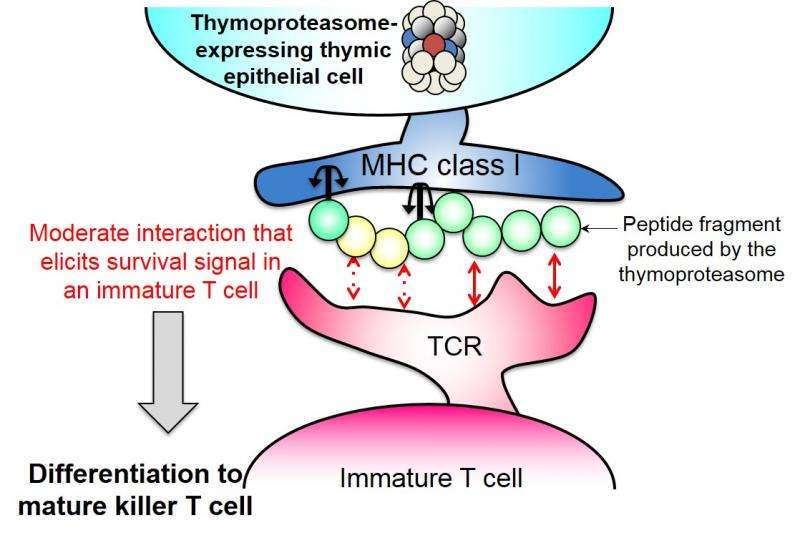Mechanism of T cell self / non-self education

Researchers at the University of Tokyo have demonstrated that a protease only found in the thymus produces special peptides that promote positive selection of T cells that can detect non-self antigens, a process that allows immature T cells to develop to maturity. This finding may further contribute to the development of therapies for infectious diseases, cancers and immune diseases.
The immune system discriminates between self and non-self and responds specifically to remove non-self pathogens invading our body. T cells play a central role in the immune response to non-self pathogens. The T-cell repertoire is shaped by "education" that occurs in the thymus. A huge number of immature T cells, each of which can recognize a single antigen, are first generated, and these immature T cells are sorted out through positive selection, which keeps potentially useful cells able to detect non-self pathogens alive, and negative selection, which kills self-reactive cells. The research group has previously revealed that the thymoproteasome, a protease complex exclusively expressed in the thymus, plays a pivotal role in positive selection. However, how the thymoproteasome governs positive selection was not understood.
The research group of Professor Shigeo Murata at the University of Tokyo Graduate School of Pharmaceutical Sciences used mass spectroscopy, capable of identifying unknown substances, and found that the thymoproteasome produces peptides with unique sequence motifs that are not produced by other types of proteasomes and clarified that the unique peptides efficiently induce the positive selection of immature T cells and thus promote differentiation to killer T cells.
"This research is significant in that it demonstrates for the first time the molecular mechanism of the first step of positive selection and may provide clues to the development of therapies for infectious diseases, cancers and immune diseases.," says Professor Murata.
The current research was carried out in collaboration with Tokushima University Institute for Genome Research and the Tokyo Metropolitan Institute of Medical Science.
More information: "Thymoproteasomes produce unique peptide motifs for positive selection of CD8+ T cells", Nature Communications Online Edition: 2015/6/25 (Japan time), DOI: 10.1038/ncomms8484


















